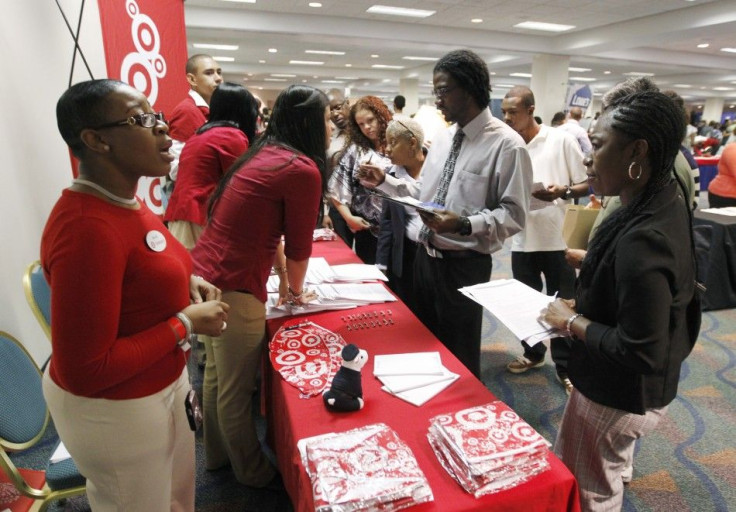U.S. Jobs Report: A Step Forward for Economy, Job Seekers
Analysis

The skinny on the January jobs report, one in which the world's largest economy added 243,000 jobs? It indicates a broad-based improvement in the U.S. labor market, but it's too soon to tell if the economy has progressed to a self-sustaining expansion with an enduring downtrend in the unemployment rate.
The U.S. unemployment rate fell to 8.3 percent in January from 8.5 percent in December and the two statistics bested the Bloomberg consensus estimates of 135,000 new jobs and an 8.5 percent unemployment rate, respectively.
In January, employers stepped up their hiring in professional/business services, which added 70,000 jobs, manufacturing, which added 50,000, and construction, up 21,000. If strong job gains in each sector continues, that would be a bullish sign for the U.S. economic expansion, as these sectors historically pay higher wages -- and that added spending power would likely increase U.S. GDP growth.
Also in January, sectors that performed well previously in the expansion continued to do so: the leisure/hospitality sector added 44,000 jobs, health care added 31,000, and retail added 19,000.
Equally significant, job gains for December and November were revised higher: December to 203,000 from the initially-estimated 200,000 gain; November to 157,000 from 100,000, good for a net 60,000-job gain for the two months. The U.S. Labor Department revises monthly job report totals as more data becomes available to the government.
In addition, in January, average hourly earnings increased 4 cents to $23.29 and the average workweek was unchanged at 34.5 hours.
U.S Job Market: A Good Month, but It's Only One Month
Still, although January's jobs report was strong, it's important for investors to keep in mind two qualifiers. First, a one month of strong employment data is not a trend. Economists need to see three, four consecutive months etc. of strong job gains to conclude that the economy is adding more jobs in a sustained way. If large jobs gains do not follow in February and March, that would likely indicate a continued, sluggish economic expansion.
Second, although the 243,000-job gain represents an improvement, the job deficit stemming from the 2007-2009 Great Recession is large. The U.S. Labor Department still lists 12.8 million people as officially classified as unemployed, and 5.5 million of these adults have been without work for more than six months. Further, the unemployment rate is much higher -- 15.1 percent -- when one includes people working part-time who want full-time work but can't find it, and those adults who recently gave up looking for work.
In other words, January's 243,000-job gain represents a small step on a very long journey. Put another way, the Economic Policy Institute, a liberal think tank based in Washington, D.C., said if the U.S. economy adds an average of 320,000 jobs per month -- well above the 150,000 average monthly job gain for 2011 -- the U.S. would not return to full employment until 2016. If the economy adds 200,000 jobs per month, full employment will not arrive until 2019.
Jobs/Unemployment: Impact on 2012 Election
Finally, the January jobs report has implications for the 2012 election, but again, there is a qualifier.
If the U.S. economy continues to add jobs at a strong rate, roughly more than 200,000 new jobs per month, and the still-high 8.3 percent U.S. unemployment rate continues to decline, political science research and polling data suggests the American people will conclude -- the U.S. economy is improving and/or the nation is on the right track, and they will support incumbents, including President Barack Obama.
However, if job growth returns to a sub-adequate level, below 150,000 new jobs per month, with little or no decline in the U.S. unemployment rate, the same polling data suggests the American people will conclude -- the U.S. economy is not improving, I could lose my job and/or the nation is on the wrong track, and they will oppose incumbents, including Obama, who would likely be voted out of office.
In sum, view the January jobs report as just that: one month of strong job growth. Regarding the issues of whether the great American job machine has finally kicked into gear and Amercian voters' stance toward incumbents, including Obama, the operative phrase is, it's too soon to tell.
--
© Copyright IBTimes 2024. All rights reserved.











